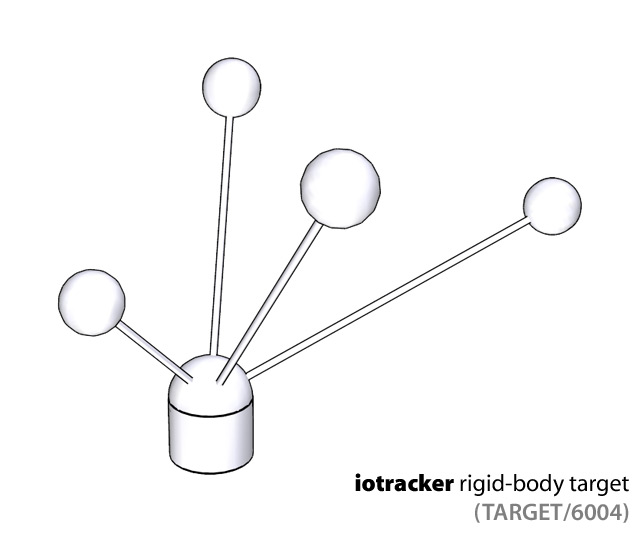|
|
LITR 5439 Literary & Historical Utopias Model Assignments
|
|
![]()
James Seth
25 June 2011
World Upside Down: Progressivism, Economy and Identity in Utopian Literature
The term “utopia” is often used in popular culture to describe a place that is peaceful, plentiful, and, basically, perfect. Utopia means “good place” or “no place” in Greek, and it can be a land of either fully realized perfection, or completely idealized perfection. Before this course, I thought that a Utopia connected with the word “oasis,” specifically in that an oasis, like a Utopia, is often an isolated and fertile place, a place that contrasts politically, socially, and geographically from its immediate surroundings. In many ways, utopias are places of escape, especially from repressive or poorly managed societies. The idea of a utopia has significantly impacted literature and culture not only because of the idea of creating a perfect world, but also because of its possibilities for social change. Just as the word’s definition can be interpreted in several ways, so too can the ideas of achieving social harmony differ greatly based on one’s views of humanity, gender, economy, nature, and morality, among other issues.
Utopian literature can be effectively interpreted as a genre by identifying its conventions, which may vary slightly from author to author (Objective 1a). Utopias are isolated from other societies, which Utopians generally see as degenerative, socially backward, dysfunctional, or destructive. However, many Utopias, such as Herland in Charlotte Perkins Gilman’s novel of the same name, are isolated without any knowledge of the outside world. Literary utopias are also harmonious, peaceful, and cooperative. Some notable Utopian conventions include: social homogeneity, progressive views on gender and economy, redirecting competition to productive outlets, and egalitarianism.
One of the conventions of literary utopias is the establishment of equal rights, and for this utopias have often been admired by progressivists for their liberal views concerning gender roles. Utopias in literature often reimagine existing societies with a level playing field between the sexes. While this seems apparent with works such as Herland, which offers a world completely run by strong, assertive, intelligent women, other works that feature “bi-sexual” utopias, such as Thomas More’s Utopia, offer surprisingly forward-thinking views on gender roles, relations, and responsibilities. More, who wrote during the English Renaissance, plays with conventions of gender-swapping and equality of work in the public and private spheres, though there is still sexist language used to appropriate work and qualify certain tasks. Like Shakespeare, who frequently toyed with gender in his comedies, More also creates a “world upside down” to reveal possibilities for social change, not only in terms of Utopia’s communal lifestyle, but in defying widely-held attitudes on the role of women in society.
Utopias are also noted for inhibiting a private, free market economy, and that absence is often seen as the source of utopian harmony. One of my personal interests in literature is finding ways that societies accommodate intrinsic motivations such as greed and desire while maintaining productivity, or keeping a productive front. For Utopias, economic development may seem like a secondary concern, but I believe that there may be more energy exerted on economy than one may initially consider. Student Kathryn Vitek states that “literary utopias are characterized by [. . .] abolition of currency and, therefore, conflict.” I would argue that, rather than completely removing physical representations of wealth, Utopias often manage the economy to prevent egoism and excessive competition, encouraging a communal relationship with humanity. One definition of “economy” provided by Dictionary.com deems it “the management of the resources of a community, country, etc., especially with a view to its productivity.” In More’s Utopia, gaudy adornments with no productive value are made into signs of shame, rather than pride, and Utopians “take care, by all possible means, to render gold and silver of no esteem” (44). Some literary utopias rely on public capital, where the nation takes ownership of all of the nation’s capital. In Edward Bellamy’s Looking Backward, the private capital shifted to public capital overtime due to the decreasing number of shareholders, and Boston became a clean and flourishing city as a result.
Some utopian economies redirect the existence of private investments into a space that allows for less conflict to arise between citizens, as well to inspire a bettering of the community. For example, in Thomas More’s Utopia, the community encourages competition in gardening, a system of individual wealth that also works to beautify the landscape and thus benefit the collective unit. In fact, “this humour of ordering their gardens so well, is not only kept up by the pleasure they find in it, but also by an emulation between the inhabitants of the several streets, who yie with each other” (31). The maintaining of gardens allows citizens to be creative, competitive, and expressive while also encouraging social utility.
One of the detractions of the Utopian narrative is the absence of conflict (Objective 2b). Often, characters who enter Utopias as outsiders, such as Julian West in Looking Backward or Jeff, Van, and Terry in Herland, come with preconceived notions and regressive ideologies that are immediately challenged. Rather than entering a place of confusion and chaos, Utopian protagonists are introduced to a tightly-managed community ruled by collaborative principles and pacifist politics. In short, the only real conflict in Utopian literature exists internally within the protagonist-outsiders, who must reconcile their own ideas on individualism, mastery, and conflict with Utopian attitudes and beliefs. This comes as a challenge for characters such as Terry, who enters Herland with firmly-set ideas on male dominance. However, Utopias manage conflict quickly and peaceably, making tension nearly impossible to create. During Jenna’s in-class discussion on the allure of dystopian literature to young adults, she mentioned that the conflict and individualist call to action in dystopian fiction appeals to young readers much more than, to put it bluntly, a boring lecture.
As a literature of ideas, Utopian fiction offers instructional narratives that tell readers how to contain and stop conflict, rather than showing them how through action. Utopian narratives are rely heavily on dialogue, and dialogue-laded novels such as Looking Backward may be about as pleasurable to a thirteen year-old than, say, reading a book on dendrochronology. Also, the amount of pleasure Utopian fiction offers is considerably less than works of other genres, particularly pop fiction genres such as romance and science fiction, which offer plenty of dialogue but allow for conflict to arise through plot devices and character development.
A serious detraction of the Utopian genre, directly related to its convention of social homogeneity, is the difficulty of creating interesting and memorable characters. Since Utopians are expected to function harmoniously and collaborate without quarrel, they generally become indistinguishable from their neighbors. Ayn Rand’s Anthem suggests that the consequence of living in a rigidly communal society is identity erasure, made evident by the inhuman treatment of workers and the neglect of inherent abilities. Anthem works as a presents a world where characters are coded, robotized products of their authoritarian society. While Anthem is told from a member of the community, More allows the narrative in Utopia to be told by Raphael, a non-Utopian, who also shares his insights and philosophy on politics and society. Raphael’s radical views, his disassociation from society, and his nomadic lifestyle make his character seem more critical of organized communities, thus making his utopian tale more credible.
Aside from Raphael, few Utopian storytellers are very interesting, partly on account of their simple task, which is essentially describing a territory and its customs, and partly because of the genre’s constraints on characterization. While some characters in Utopian fiction, such as Dr. Leete or Raphael, are more memorable for their close interactions with the protagonist-outsiders, most of the other Utopian characters, particularly women, seem to almost disappear in the landscape. Even in Gilman’s Herland, the three female characters Celis, Alima, and Ellador are much less developed than their male counterparts, though they are more three-dimensional than the other women of Herland. The Utopian setting, rather than its inhabitants, inevitably becomes a kind of heroic character in itself, distinguishing positively against the protagonists’ chaotic motherland.


